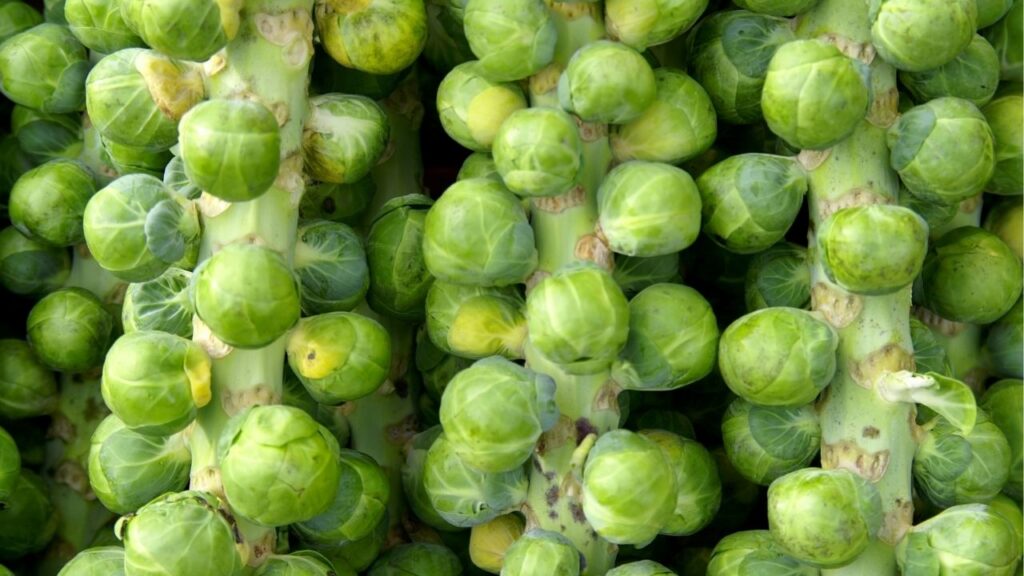Giving dogs up to one teaspoon per 10 pounds of body weight of coconut oil offers medium chain triglycerides that quickly provide a direct energy source to the liver, brain, and body.
Key Takeaways
- Coconut oil is good for dogs.
- Coconut oil for dogs supports skin, hair, and gut health, and is a ready source of energy for your dog.
- Coconut oil may also help make chemotherapy more effective and protect against side effects.
- It is OK to give dogs coconut oil. Give up to 1 teaspoon of coconut oil per 10 pounds of body weight but start with a very small dose and increase over time.
- Coconut oil can help a dog’s itchy skin.
Is Coconut Oil Good for Dogs?
Coconut oil is a food full of dietary fats that can be a great source of primary energy for cells in the body.1 Veterinarians may recommend coconut oil for dogs for several uses, particularly for skin and hair health.
Let’s look at some of the benefits of coconut oil in general and why it can be good for dogs.
Skin and Hair
When used as a skin moisturizer, virgin coconut oil provides more relief for human patients with dry skin than mineral oil.5
Similarly, the lauric acid found in virgin coconut oil has a low molecular weight and easily bonds to proteins found in hair, allowing it to penetrate the hair shaft and deliver high-quality nutrients.6
Antimicrobial Properties
Coconut oil has also demonstrated antimicrobial abilities. Granted, these MCTs have to be present in very high concentrations to be effective. For example, virgin coconut oil was unable to kill Staphylococcus aureus on a pig carcass, but lauric acid applied at higher doses was.3
Ticks and Mange
In another study, virgin coconut oil was combined with spent coffee grounds in a one-to-one ratio and applied to the skin of one dog with mange and two dogs with ticks for a total of two weeks. Results showed a significant reduction in the number of ticks on the two dogs and faster healing of wounds that were caused by mange on the third dog.7
Brain Function
In addition to physical improvements outside of the body, virgin coconut oil can also help improve brain function. A 2010 study tested the effect of an experimental diet containing MCTs on the cognitive abilities of 24 Beagle dogs between the ages of 2.5 and 11.6 years. Dogs had fewer cognitive errors and learned faster when they were on the diet packed with MCTs versus the standard control diet.8
Coconut Oil and Cancer
Coconut even shows promise when it comes to cancer.
Studies on the impacts of virgin coconut oil on canine cancer are lacking, but studies in humans and other animals, such as rats, have been promising.
For example, research that on rats with breast cancer found that virgin coconut oil suppressed tumor growth when added to their diets.9
Diets containing 60% MCTs helped two female human pediatric patients with advanced stage malignant astrocytoma tumors. Both patients reached ketosis within seven days and one exhibited significant clinical improvement in mood and remained free of disease progression when continuing the diet for 12 months after the study had concluded.10
In a laboratory setting, virgin coconut oil was found to induce apoptosis, or cell death, in human cancer cells. Interestingly, normal cells appeared to be unaffected.1
Apoptosis was also observed in a study that examined the effect of virgin coconut oil on lung cancer cells. After exposure to virgin coconut oil for 72 hours, 3.57% and 4.20% of cells were identified as having undergone cell death.11 The same was reported for colon adenocarcinoma cells.12 It’s important to note that these studies were done in the lab, not in living bodies. It’s interesting, but not proof that eating virgin coconut oil would kill cancer cells in a living body.
Quality of Life
Virgin coconut oil may also contribute to a greater quality of life for dogs with cancer. One human-based study examined the effect of virgin coconut oil on the reported quality of life of patients diagnosed with breast cancer and undergoing chemotherapy.
A total of 30 women were put into an experimental group that received 10 mL of virgin coconut oil two times a day while another 30 women were not provided with virgin coconut oil.
The experimental group reported better scores for fatigue level, sleep difficulties, and loss of appetite, and relayed higher scores for factors surrounding body image and enthusiasm for the future.13
Appetite
Cancer, as well as conventional cancer treatments, can cause dogs to lose their appetite, but coconut oil may be a good tool for encouraging eating. It can be a healthy tasty addition when mixed into your dog’s food.14
We know dogs like coconut oil, because in a test that compared dog preference for food coated with esterified fatty acid oil with 50% soybean and 50% canola oil and food coated with 20% to 40% coconut oil, dogs consistently preferred the food coated with coconut oil, and preferred the food coated with 40% coconut oil over the food with 20% coconut oil.15
Let’s look at the types of coconut oil.
Types of Coconut Oil
Coconut oil comes in three different types, which vary slightly based on preparation method and processing practices.
Virgin Coconut Oil
Virgin coconut oil is obtained by rotating a hydraulic wheel to separate the kernel from the fruit of a coconut tree via a procedure called cold press processing.3 Cold press processing helps the end product to obtain more of its nutrients by eliminating the use of heat, making it more nutritionally valuable and pure.
Given its closer relation to the coconut fruit itself, virgin coconut oil is the variation of choice if you are adding it to your dog’s diet.18
Refined Coconut Oil
Refined coconut oil undergoes an additional processing step in which the oil is steamed, heated, and bleached to make it cleaner, odorless, and tasteless, as well as to give it a higher smoke point.2
Partially Hydrogenated Coconut Oil
Partially hydrogenated coconut oil also goes through an additional processing step that helps to extend its shelf life by keeping it in a strictly solid state. Partially hydrogenated coconut oil is not considered a healthy food,19 and can actually be harmful to your dog’s health.
In a study that fed eight dogs a diet containing 5% cholesterol and 15% hydrogenated coconut oil for 12 to 14 months, seven of them developed severe atherosclerotic lesions and plaques in their coronary and major cerebral arteries, as well as their aorta and iliac vessels. 4
Fatty Acids from Coconut Oil
Coconut oil contains a high amount of fats, which are simply a chain of carbon atoms that come in varying lengths – short chain fatty acids, medium chain triglycerides (MCTs), and long chain triglycerides (LCTs).19
These fatty acids are important for your dog because they serve as building blocks for phospholipids and glycolipids, molecules that tell proteins where to attach to cell membranes, serve as hormone and intracellular messengers, and act as an energy source for other molecules.1
Short chain fatty acids are made in your dog’s gastrointestinal tract by probiotics, healthy bacteria that ensure the proper functioning and health of your dog’s gut.
Both MCTs and LCTs are not made by the body, but rather must be obtained from food.20 It’s the high percentage of MCTs found in coconut oil that make it a health-conscious and beneficial food.
Medium Chain Triglycerides from Coconut Oil
MCTs are uniquely important because of the way they’re processed by the body.
Upon entry, MCTs are broken down by a protein called lipase, then sent through the bloodstream to the liver where they are converted into ketones, an energy source.
The liver uses most of these ketones to fuel its own cells, remove harmful compounds, and digest other foods, but any ketones left over go back into the blood stream to be used by the body for cognitive and physical functions.20
MCTs are a readily available energy source that’s more likely to be used by the body promptly and less likely to be stored as fat.20
In fact, MCTs are so efficient that they are ingredients of choice for diets to help patients that have been diagnosed with malnutrition, malabsorption, or fatty acid metabolism disorders. These dogs need easy energy, and MCTs don’t require energy input for absorption, use, or storage.1
Virgin coconut oil has the highest concentrations of MCTs. For example, 48-53% of virgin coconut oil is the MCT called lauric acid.1
MCTs in Keto Diets
Coconut oil is a dietary staple in most keto-based diets because of the role MCTs play in producing ketones. Evidence surrounding the benefits of a keto diet for dogs with cancer is sparse and the higher amount of fat can lead to issues such as pancreatitis, but some dog owners believe their dogs have benefitted when they switched them to a keto-based diet.
When to Not Use Coconut Oil for Dogs
You should always consult with your veterinarian before adding a new food to your dog’s diet. Adverse reactions to coconut oil are rare but can occasionally occur.18
Coconut oil may not be a good addition to the diet of dogs who are already overweight because it is high in calories and can clog arteries if consumed in excess.18
It’s important to remember that the amount you give may matter, so don’t give your dog more than the safe amount, and only if your veterinarian thinks it is a good idea for your dog specifically.
Here’s why that’s important. A study that fed Beagles and Greyhounds a control pelleted diet or a modified pelleted diet supplemented with 16% coconut oil and 5% cholesterol over 12 weeks documented some troubling health outcomes.
Significant liver abnormalities occurred in the experimental group along with lowered red blood cell counts and abnormally shaped red blood cells.
Blood cholesterol levels also increased.
One Beagle given the experimental diet even developed severe anemia.
Once dogs in the experimental group were taken off the diet, all red blood cell parameters returned to normal.17
Coconut oil may have good benefits, but as with all things, the dose matters.
Safe Coconut Oil Dog Amount
Coconut oil is easy to prepare – just scoop and serve.16 Start by giving just a 1/4 teaspoon daily for small dogs or 1 tablespoon (15 mL) daily to larger dogs and gradually increasing the amount.
Some sources say that you can increase the dose to 1 teaspoon per 10 pounds (5 mL per 4.5 kg) of body weight while others stipulate ½ tablespoon per serving.15,16
Topical Use of Coconut Oil
Coconut oil can also be applied topically and has reported benefits for your dog’s skin and coat. You can massage the coconut oil on the intended area or follow the instructions on your product if you purchase something specifically sold as topical coconut oil for dogs.
What Kind of Coconut Oil Is Best for Dogs?
Be sure to get virgin coconut oil for your dog, not refined. This is an important distinction, as refined coconut oil has been reported as carcinogenic due to the free radicals that develop during processing and heating.18
While you can give your dog the virgin coconut oil sold in the grocery store, some products are specifically tailored to dogs and have their own instructions. Talk with your vet to determine the right product and dosage for your dog.
Where to Get Coconut Oil for Dogs
You can find coconut oil at most grocery food stores, and it’s also available for purchase online.
You may see the words “extra virgin” on a label for virgin coconut oil, but there is no difference between virgin and extra virgin coconut oil. These terms don’t have a legal definition or standard in the United States19 so their use on products seems to simply be a marketing ploy.
Coconut Oil Storage
You should follow the storage instructions on your specific product, but in general coconut oil should be stored at cool room temperature away from light.19 It is okay if it melts and then solidifies again. This will not change the integrity of the coconut oil itself and it is still safe to give your dog.
- Ramya V, Shyam KP, Kowsalya E, Balavigneswaran CK, Kadalmani B. Dual roles of coconut oil and its major component lauric acid on redox nexus: focus on cytoprotection and cancer cell death. Front Neurosci 2022;16:833630.
- Shoemaker SV. Refined vs. unrefined coconut oil: What’s the difference? Healthline. https://www.healthline.com/nutrition/refined-vs-unrefined-coconut-oil. Published January 6, 2022. Accessed April 17, 2023.
- Tangwatcharin P, Khopaibool P. Activity of virgin coconut oil, lauric acid or monolaurin in combination with lactic acid against Staphylococcus aureus. Southeast Asian J Top Med Public Health 2012;43(4):969-985.
- McCullagh KG, Ehrhart A, Butkus A. Experimental canine atherosclerosis and its prevention. The dietary induction of severe coronary, cerebral, aortic, and iliac atherosclerosis and its prevention by safflower oil. Lab Invest. 1976;34(4):394-405.
- Agero AL, Verallo-Rowell VM. A randomized double-blind controlled trial comparing extra virgin coconut oil with mineral oil as a moisturizer for mild to moderate xerosis. Dermatitis. 2004;15(3):109-116. doi:10.2310/6620.2004.04006 (5)
- Rele AS, Mohile RB. Effect of mineral oil, sunflower oil, and coconut oil on prevention of hair damage. J Cosmet Sci. 2003;54(2):175-192. (6)
- Parole PG. Natural topical treatment for mange and tick infestation on dogs using coconut (Cocos nucifera) oil and spent Barako coffee (Coffea liberica) grounds. Ascendens Asian J Multidiscip Res Abstracts. 2019;3(20). (7)
- Pan Y, Larson B, Araujo JA, et al. Dietary supplementation with medium-chain TAG has long-lasting cognition-enhancing effects in aged dogs. Br J Nutr. 2010;103(12):1746-1754. doi:10.1017/S0007114510000097. (8)
- Sugihara H. Suppression of growth of DMBA induced mammary cancers in female rats fed coconut oil diets. Kansai Ika Daigaku 1974;26(1):72-88. (9)
- Nebeling LC, Miraldi F, Shurin SB, Lerner E. Effects of a ketogenic diet on tumor metabolism and nutritional status in pediatric oncology patients: two case reports. J of Am Coll of Nutr 1995;14(2):202-208. (10)
- Kamaladin NA, Yusop MR, Sulaiman SA, Yahaya BH. Apoptosis in lung cancer cells induced by virgin coconut oil. Regenerative Res 2015;4(1):30-36. (11)
- Salerno JW, Smith DE. The use of sesame oil and other vegetable oils in the inhibition of human colon cancer growth in vitro. Anticancer Res 1991;11:209-215. (12)
- Law KS, Azman N, Omar EA, Musa MY, Yusoff NM, Sulaiman SA, Hussain NHN. The effects of virgin coconut oil (VCO) as supplementaion on quality of life (QOL) among breast cancer patients. Lipids in Health and Disease 2014;13:139. (13)
- Dressler D, Ettinger S. The Dog Cancer Survival Guide. Maui Media LLC. 2011. (14)
- Fragua V, Barroeta AC, Manzanilla EG, Codony R, Villaverde C. Evaluation of the use of esterified fatty acid oils enriched in medium-chain fatty acids in weight loss diets for dogs. J Anim Physiol Anim Nutr 2015; 99 (Suppl 1): 48-59. (15)
- Elliott B. Is coconut oil good or bad for dogs? The surprising truth. Healthline. February 6, 2020. Accessed December 12, 2022. https://www.healthline.com/nutrition/coconut-oil-for-dogs. (16)
- Cooper RA, Leslie MH, Knight D, Detweiler DK. Red cell cholesterol enrichment and spur cell anemia in dogs fed a cholesterol-enriched atherogenic diet. J Lipid Res. 1980;21(8):1082-1089. (17)
- Srivastava S, Singh M, George J, Bhui K, Saxena AM, Shukla Y. Genotoxic and carcinogenic risks associated with the dietary consumption of repeatedly heated coconut oil. British J of Nut 2010;104;1343-1352. (18)
- Coconut oil. Harvard TH Chan School of Public Health. https://www.hsph.harvard.edu/nutritionsource/food-features/coconut-oil/#:~:text=Partially%20Hydrogenated%3A%20The%20small%20amount,fats%2C%20which%20should%20be%20avoided. Published July 6, 2021. Accessed April 17, 2023. (19)
- Jadhav HB, Annapure US. Triglycerides of medium-chain fatty acids: A concise review. Journal of Food Science and Technology. June 2022. doi:10.1007/s13197-022-05499-w (20)
Topics
Did You Find This Helpful? Share It with Your Pack!
Use the buttons to share what you learned on social media, download a PDF, print this out, or email it to your veterinarian.







